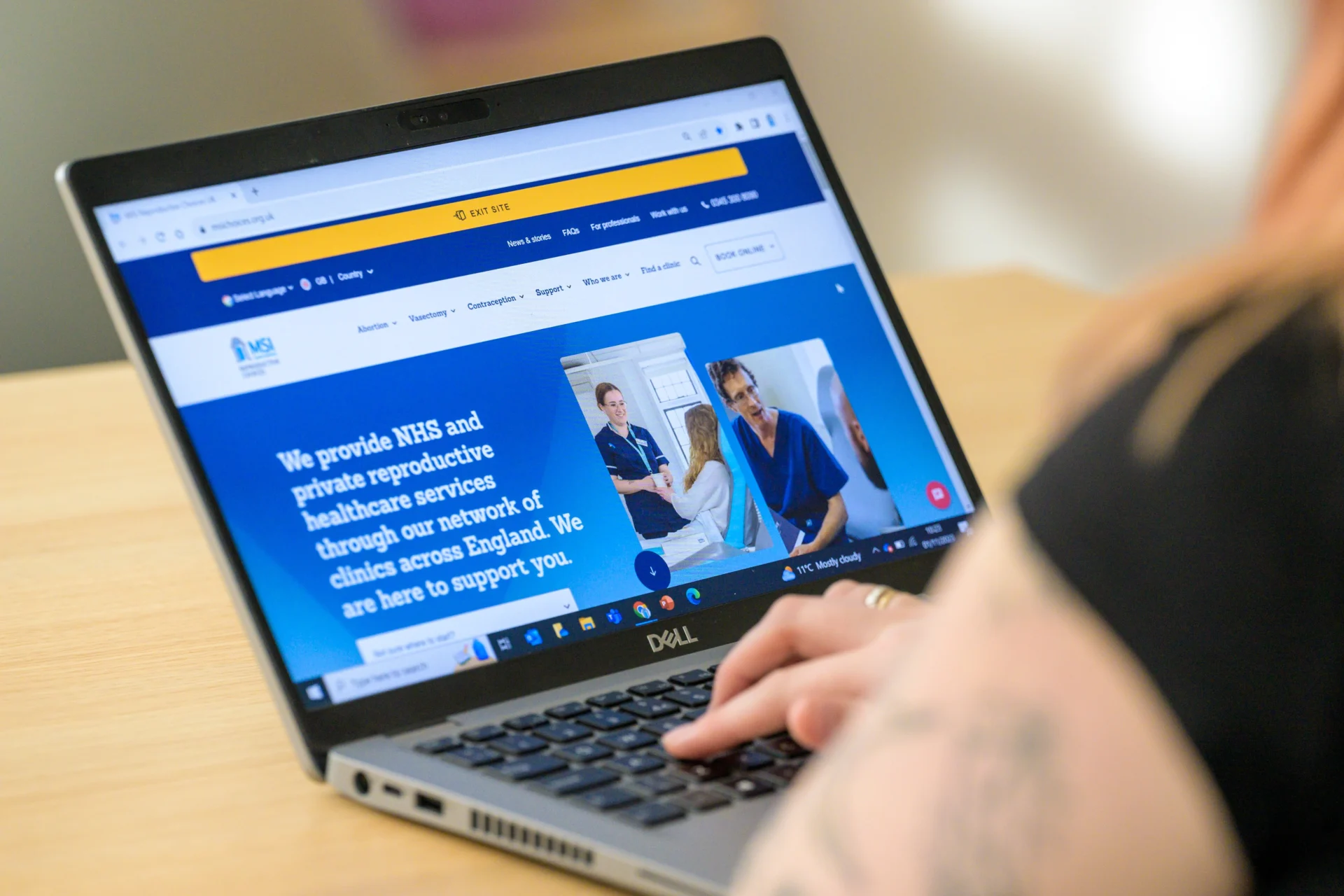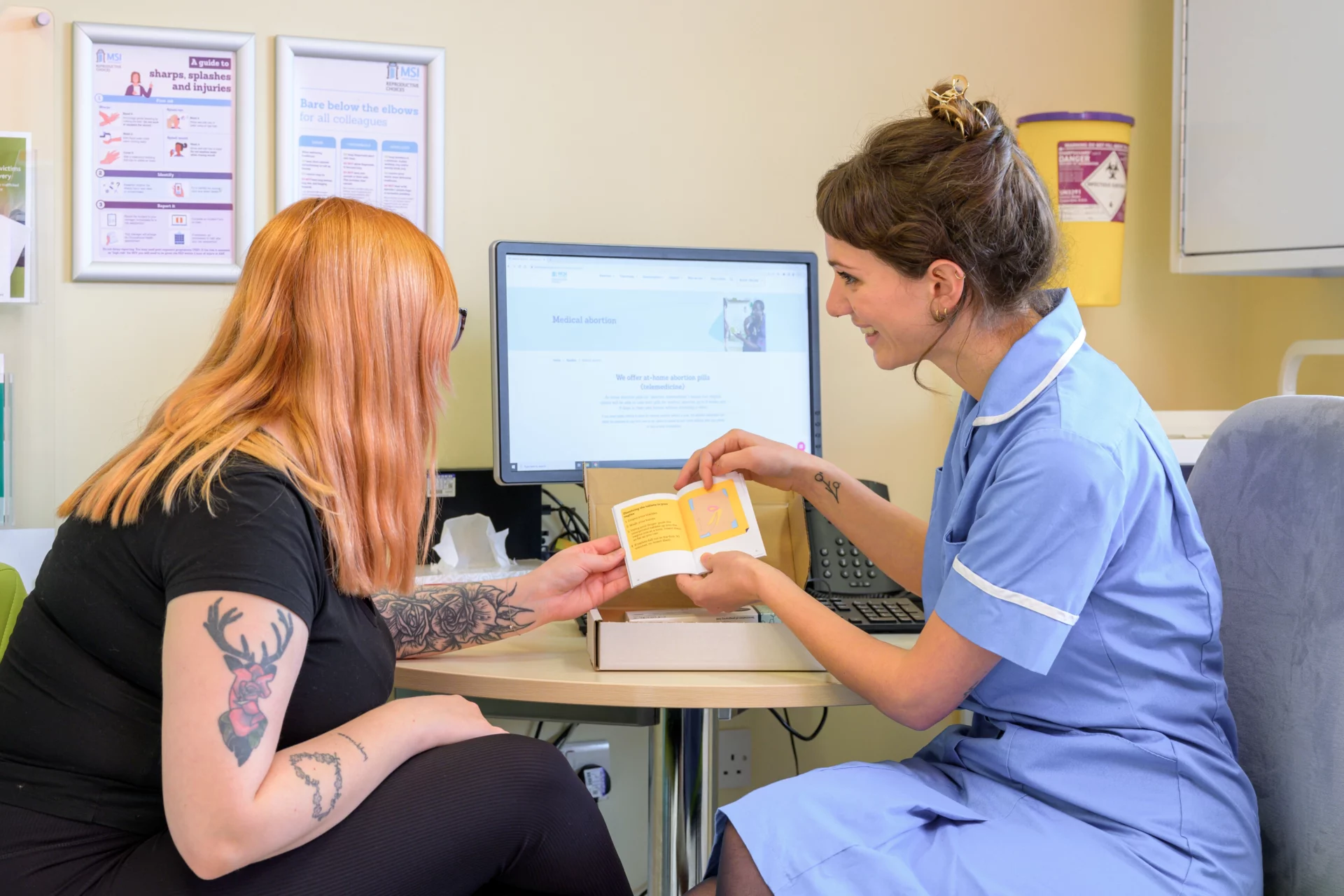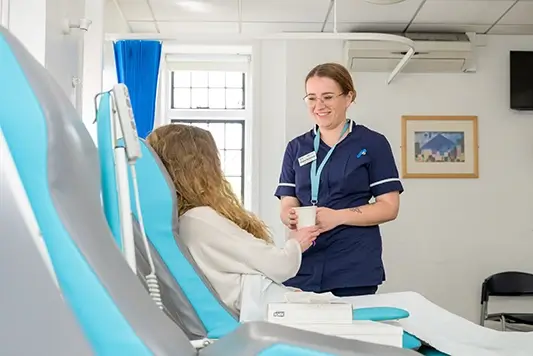London, Monday, 1st March 2021
Telemedicine is a safe, effective and kinder way for people to receive abortion care, but radical, anti-choice groups are still attempting to undermine it, writes Caroline Gazet, UK Clinical Director for MSI Reproductive Choices.
In March 2020, the UK government introduced temporary guidance to allow women to take both medical abortion pills at home up to 10 weeks gestation. The legislation was welcomed by health providers across the board as a way to protect women during the on-going COVID-19 pandemic, allowing them to receive vital abortion care without risking their lives through unnecessary travel, or putting additional strain on an already struggling NHS.
Since telemedicine’s introduction, 150,000 women and girls across the UK have been able to access the safe, effective and high-quality care they need and deserve. Days spent waiting for an abortion have reduced, with almost half of patients (46%)[i] able to have a detailed consultation with a clinician within one day. And being able to access abortion care earlier in the pregnancy has reduced the low complication rate even further.
As the global pandemic continues long beyond what anyone ever expected, and ongoing restrictions including national lockdowns continue to limit people’s ability to reach our clinics, there is no doubt in my mind that telemedicine has changed the landscape of abortion care for the better. And 98%[ii] of women who have rated MSI’s telemedicine service agree with me.
But as is the norm when it comes to abortion care, advances in treatment often trigger a stream of misinformation about the services we provide, and although telemedicine is recommended as best practice by the National Institute for Care and Excellence (NICE), radical, anti-choice groups are attempting to undermine it. Now, as the UK government consult on whether to make telemedicine for early medical abortion care a permanent service, these attacks on are only increasing.
The myth of ‘DIY abortions’
One such way is the use of the term ‘DIY abortion’ and when I see this phrase, I am both saddened and angered. Saddened, because, in reality, the term ‘DIY abortion’ was coined by radical, anti-choice groups, in an attempt to undermine the huge amount of work by dedicated medical professionals to ensure women can still have abortions safely. Angered, because the myth of ‘DIY abortions’ only exists to scare and control women and is knowingly perpetuated by those who would rather see women risk their lives than use a highly regulated healthcare service that works for them.
Telemedicine in healthcare
Today, many services including the NHS and GPs, use telemedicine as their main patient interaction. From repeat prescriptions for long-term conditions to women accessing contraception during the pandemic, people across the UK consult with a doctor via telephone and have their medication sent directly to pharmacies, to collect at their convenience and take in the privacy of their home.
Taking abortion tablets at home is also nothing new, and up to March 2020, English law stated that while women had to take their first abortion tablet, Mifepristone, in a clinic, the second tablet, Misoprostol, which causes contractions to pass the pregnancy, could be taken 24-48 hours later at home. Thus, allowing women to self-manage the second half of their abortion in a private and comfortable setting.
Telemedicine, which follows pre-existing international and national guidance, has only worked to expand choice, meaning that following a robust screening and safeguarding process, eligible women and girls can choose whether they want to attend a clinic or have their abortion care provided remotely instead. Like all NHS healthcare settings in the UK, MSI trusts women to provide honest and accurate information when accessing this legal healthcare.
A patient’s telemedicine experience with MSI
Following their consultation, all women are counselled on what to expect during their abortion, given full details of how to take the medicine, provided with adequate pain relief and advised to call MSI’s specialist nurse-led 24-hour advice line if they are worried about anything at all. As one woman who used telemedicine confided:
“During lockdown, I realised I was pregnant, but with health complications during my first pregnancy, I could not physically or mentally manage to carry a healthy pregnancy. I didn’t want to go through my GP as my line of work means confidentiality would have been impossible and the other nearest clinic was over 100 miles away.
“After three phone calls with very professional and understanding staff at MSI, I received my pills 7 days after finding out I was pregnant. I was scared about possible side effects but a lovely nurse on the helpline reassured me. Then, four and a half hours after inserting the pills, I began to pass the pregnancy. Last night I snuggled up with my daughter and read ‘Peace at Last’ and thought how thankful I am to MSI telemedicine for this peaceful moment, feeling safe and not afraid for my health or future.”
At MSI UK, we are also still seeing many patients in clinics, whether needed or requested and of the total number of medical abortions MSI has provided in the UK since 6 April 2020, approximately 43%[iii] have been via telemedicine and 57%[iv] through a face-to-face consultation.
An improvement in safeguarding and access
Our team at MSI UK has also found it easier to safeguard and protect vulnerable women and girls, as those previously too frightened to attend consultations in person can talk more openly and privately about intimate or even distressing details via telephone or video. This improved access for vulnerable groups and those facing abuse or coercion to keep an unplanned pregnancy, means we have seen a major uplift in safeguarding disclosures, including those from survivors of domestic abuse and sexual violence.
Had telemedicine not been available, there is a real danger that these women and girls may have turned to illicit sources for abortion pills, without the safeguarding and aftercare provided by a regulated service, or been forced to continue with an unplanned pregnancy, a method of control widely used by perpetrators of domestic abuse.
So, when we look at the evidence and data and when we listen to the medical professionals and women involved, there is nothing ‘DIY’ about telemedicine for abortion care. What there is, are experienced medical professionals supporting women in a proactive, responsible, safe and caring way, using a fully regulated screening and safeguarding process and a robust aftercare package.
Most importantly, telemedicine providers trust that women can take their prescribed medication as directed, with dignity and privacy in the comfort of their own home. When it comes to misinformation in abortion care, it’s about time the phrase ‘DIY Abortions’ was ditched.
[i] MSI UK internal appointment data from its Client Record System for clients who have used the Telemedicine Service since its introduction in April 2020 to 22nd December 2020.
[ii] MSI UK Internal data from its ‘Welfare check’ telephone questionnaire conducted by Rightcare. Fieldwork was conducted between between 21st April 2020 and 22nd December 2020. Total sample size was 1,246 respondents who had used the Telemedicine service, with 1,223 respondents rating the service good or very good.
[iii] MSI UK internal appointment data from its Client Record System for clients who have used the Telemedicine Service since its introduction in April 2020 to 22nd December 2020.
[iv] Ibid







